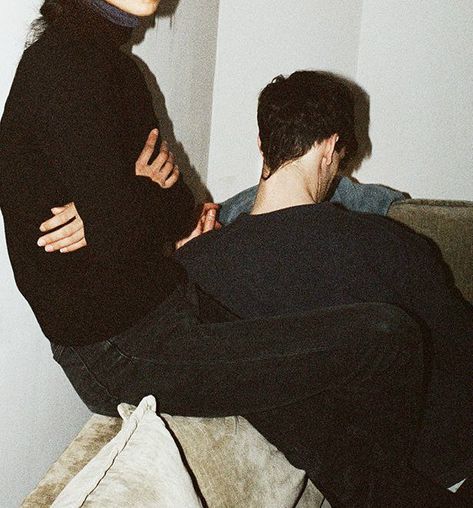Latest Posts by portraitofglue - Page 3
“Hindi, like Gaelic, is a colonised space. It is a language complete in itself, with its own history, literature, poetry and tradition. But more than sixty-five years after Indian independence, it has been surrounded and absorbed by English, so among the Indian middle classes it is no longer a prestige language. It is the vernacular, the language one speaks at home; one does not use it to write to the tax office, nor take one’s degree. So if it doesn’t matter if it’s not perfect – if it doesn’t matter if a noun is masculine or feminine; if a verb falls to be transitive in the past perfect; if you just use the English word, because who can remember the Hindi for mathematics or apartment or transubstantiation – then for all I wage my small battle, we’re losing the war. To speak our language perfectly – to choose to do so, despite decades of colonial influence – is another political act.”
— “A’ghailleann”, Iona Sharma. (via a-witches-brew)

Crowned dragon as tail-eater; two dragons forming a circle and, in the four corners, signs of the four elements. — Eleazar, Uraltes chymisches Werk (1760)





Uroboros. — Codex Marcianus
C. G. Jung, Collected Works of C.G. Jung, Volume 12: Psychology and Alchemy
Also similar to this, but does anyone have any reading recs on isolation, loneliness and paranoia that stems from it? Anything similar to how isolation breeds a rather burdening imagination, paranoia, further distance. Fiction, non fiction, articles, essays, poems; I'll take anything
I was listening to the audiobook of The Secret History and realised something: Lafourge says that Richard would be isolated from everyone from the campus once he joins Julian's class, which Richard dismisses. Despite him going to college parties and being acquaintances with Judy, he truly has no one but the classics group. This becomes incredibly evident in the winter he spends in Hampden, having no one to go to for shelter—the result of him choosing to be with the greek class. His isolation takes form of the cold he endured during that time because there is no one he can go to. In the end, it is Henry who saves him, pulling him back into the caverns of the group, and his alienation.

















enver gortash and family home
@clementinevonradics Courtney Love Prays To Oregon / Brendan Burton American Poetry / Lois Dodd / @filmnoirsbian DO NOT REPLY / Georges Lefebvre The Mother of the Artist / Mattias Härenstam Down There / Louise Bourgeois / Crime scene photos Deadly home invasion CBS news / @heavensghost It lingers for your whole life / Louise Bourgeois Maman / @filmnoirsbian / Geloy Concepcion Things You Wanted so Say But Never Did / @filmnoirsbian DO NOT REPLY
"...in pronouncing the name, I had secured a sort of power over it, by the mere act of drawing it up out of my dreams and giving it an objective existence in the world of spoken things."
Marcel Proust, In Search of Lost Time vol 1: Swann's Way, "Combray"
What they don't tell you is that if you drink soda in a friendly and joyful state of mind, all the negative effects, like the high sugar and acidic content, are nullified
please let me live in this forever and ever

flan with friends 🍮 print available here !
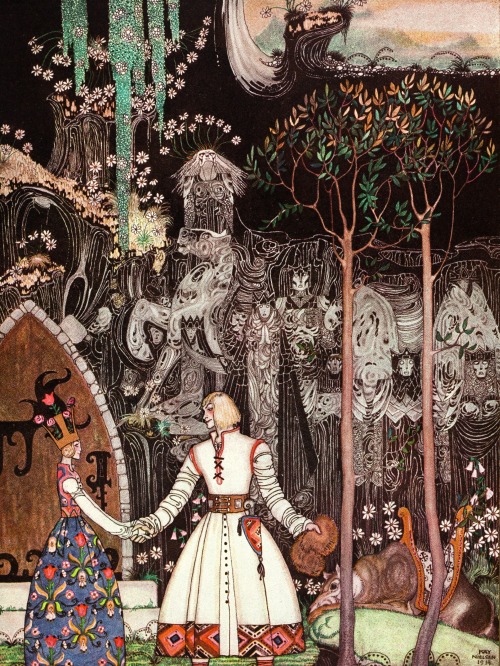
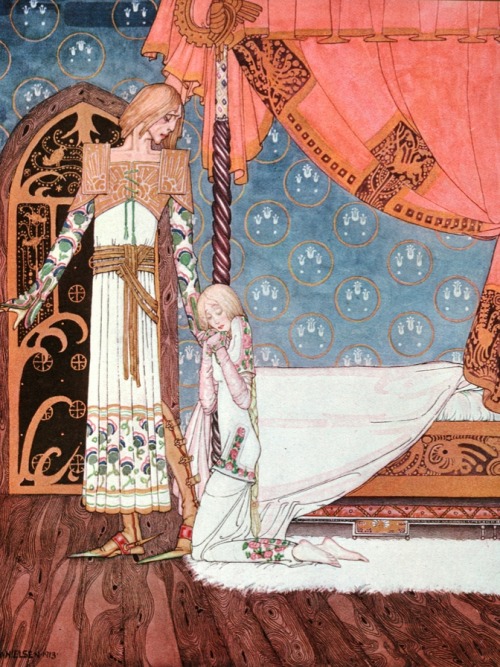

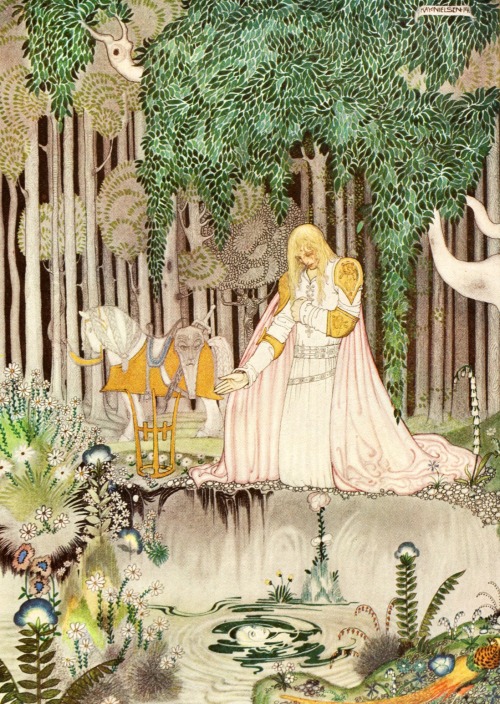


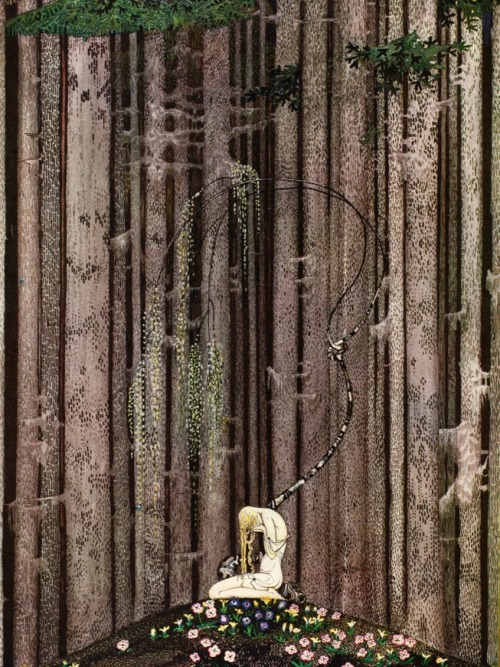
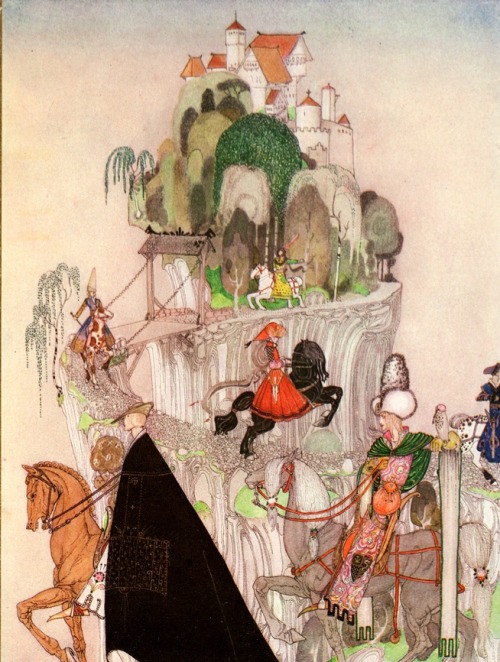
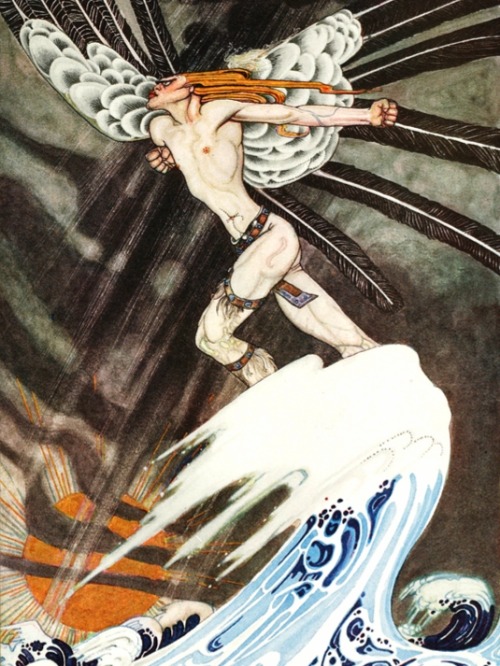
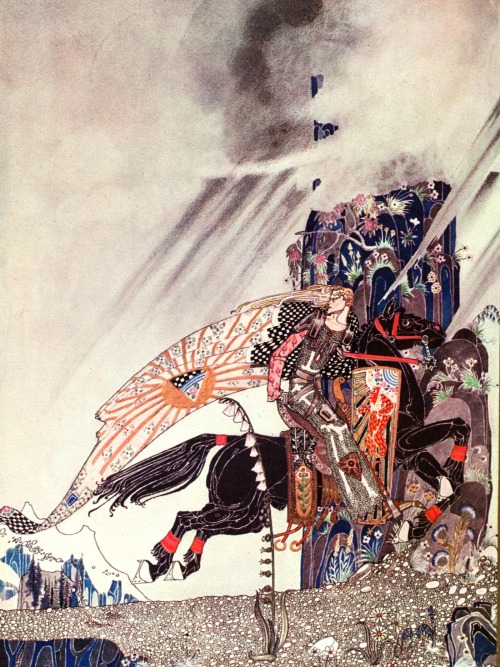
The East of the Sun and West of the Moon
Kay Nielsen (1886-1957), Danish illustrator.
This artist is known to have been hired in 1939 by Disney, in order to carry out studies as part of the future film projects of the firm, and will remain, in the end, a short time in this job, judging it in all the extent of his career.
The essence of his work consists in an important quantity of illustrations of tales or collections, in the first half of the twentieth century, in what will be called the Golden Age of illustration.
His style, characteristic of Art Nouveau, is recognizable among all, with its impacting strong black backgrounds and elegant and graceful characters.
(The pictures are illustrations from The East of the Sun and West of the Moon, 1914 ; and belong to public domain)
I was listening to the audiobook of The Secret History and realised something: Lafourge says that Richard would be isolated from everyone from the campus once he joins Julian's class, which Richard dismisses. Despite him going to college parties and being acquaintances with Judy, he truly has no one but the classics group. This becomes incredibly evident in the winter he spends in Hampden, having no one to go to for shelter—the result of him choosing to be with the greek class. His isolation takes form of the cold he endured during that time because there is no one he can go to. In the end, it is Henry who saves him, pulling him back into the caverns of the group, and his alienation.

Death and Life, Gustav Klimt
Excerpts from Today by Victoria Chang
a beautifully constructed poem on death and grief





People do not realize that when we say Israel is a settler-colonial state, we mean it was literally devised in junction with European imperialism around the turn of the century.
Political Zionism was founded by Theodore Herzl. Originally, Zionists were not specifically interested in the land of Palestine as a colonial project. In fact, Herzl was debating making Argentina the focus of mass Zionist migration, which is quite ironic considering Argentina's colonial and Aryanist past. British-controlled Uganda was also offered as a possibility by Joseph Chamberlain, a Conservative imperialist.
To encourage mass Jewish migration to Palestine, he worked with the British, who had recently drove the Ottoman Empire out of the Levant, and now boasted political dominance in the region, thanks to the Sykes–Picot Agreement between the UK, France, Italy, and Russia which covertly authorized British influence in Palestine, which had become a target of colonial expansion. He specifically wished to collaborate with Cecil Rhodes, a British imperialist who played a lead role in colonizing Zimbabwe and Zambia, and later took inspiration from his time spent extracting wealth from Africa as the founder of mining conglomerate the British South Africa Company.
Herzl’s personal goals for Zionism were colonial. He said in a letter to Rhodes:
“You are being invited to help make history. It doesn’t involve Africa, but a piece of Asia Minor; not Englishmen but Jews […] How, then, do I happen to turn to you since this is an out-of-the-way matter for you? How indeed? Because it is something colonial […] I […] have examined this plan and found it correct and practicable. It is a plan full of culture, excellent for the group of people for whom it is directly designed, and quite good for England, for Greater Britain [...]”
At that time, Palestine was predominately populated with Arab Muslims and Christians, as well as Arab Jews (Old Yishuv) and Druze. Jews made up around 6% of the population. The Ottoman government specifically released a manifesto at the start of Zionist migration condemning the colonization, stating:
“[Jews] among us […] who have been living in our province since before the war; they are as we are, and their loyalties are our own.”
The Balfour Declaration of 1917 on behalf of parliament, officially established the British Mandate of Palestine, sowing the seeds for the modern state of Israel, by means of the UK's ongoing occupation of the region.
Zionism was never about promoting Jewish culture or safety; it has always been tied up in Western (settler-)colonial expansion. !من النهر إلى البحر
all lovers in the night-Meiko Kawakami's book-a recent read and instant favourite.
my favourite albums -an ongoing dump of my favourite albums start to finish
love songs-my favourite love songs (an ongoing list)
jazz-a master-collection of my favourite jazz songs
if not, winter-reading Sappho's poetry
More of my playlists :)
To Live Forever- a TSH playlist (songs I think fit)
matchbox cars- for driving all around Tokyo with friends (futuristic and retro at the same time)
coming of age- if I made a teen show, this would be the soundtrack
House Arrest- for cleaning the house with a robot version of you
summer- for wasting your days with your small group of friends
mockingbirds- songs I’d listen to when I fake my death
clementines- for laying on your bed, feeling full and complete
sunflowers- based on that Holly Warburton painting
the asian american writers’ workshop just published 16 love poems by poets of palestinian heritage that were featured in the anthology we call to the eye & the night edited by hala alyan & zeina hashem beck

— Lorde, Sober II (Melodrama)
“The lights are out on all of us. We go on in our dark fogs. Unless someone else turns to look your way & lights the light.”
— Molly Brodak, from Bandit

Christmas tree - Jette Stoltz
Swedish , 1923-2010
Oil on canvas, 115 x 115 cm.
i love writing. i hate writing. i have so many ideas & quite literally nothing to say
Tonight the moon is full. Through the window the moon covers my bed and turns everything a milky bluish white. So I escape by closing my eyes. Because the full moon is light insomnia: numb and drowsy like after love.
Clarice Lispector, from "Água Viva" (tr. by Stefan Tobler)
december consumption
these are forms of media that i frequently associate with december
books
Devotion, Patti Smith
A Spy in the House of Love, Anais Nin
After Dark, Haruki Murakami
The Woman in the Dunes, Kōbō Abe
Sleepless Nights, Elizabeth Hardwick
Untold Night and Day, Bae Suah
Paradais, Fernanda Melchor
articles/essays
Everything Visible Is Empty: Toshio Matsumoto, Stuart Monro-Mousse Magazine
As a city, Hong Kong confounds. The sheer aggressiveness, people jostling for trains or shouting from afar, somehow feels more intimate than unsettling.
A Mexican Novel Conjures a Violent World Tinged With Beauty, Julian Lucas-NYT
(on Hurricane Season by Fernanda Melchor)
Our Doppelgängers, Ourselves, Alan Glynn-Lit Hub
Cannibal Manifesto, Oswald De Andrade

Strange Fruit: the first great protest song, Dorian Lynskey-The Guardian
poetry
The Denial of Death, Louise Glück

Funeral Blues, W.H Auden
A Quiet Poem, Frank O'Hara
Giving Up Smoking, Wendy Cope
I Walked Past a House Where I Lived Once, Yehuda Amichai

Last Curtain, Rabindranath Tagore
Perhaps the World Ends Here, Joy Harjo

currently reading:
except for palestine: the limits of progressive politics by marc lamont hill & mitchell plitnick
palestine: a socialist introduction, ed. by sumaya awad & brian bean
on my non-fiction reading list:
the question of palestine, edward said
the hundred years’ war on palestine, rashid khalidi
palestinian identity, rashid khalidi
ten myths about israel, ilan pappé
the ethnic cleansing of palestine, ilan pappé
on palestine, noam chomsky & ilan pappé
blaming the victims: spurious scholarship and the palestinian question, ed. by edward said & christopher hitchens
the case for sanctions against israel, ed. by audrea lim
justice for some: law and the question of palestine, noura erakat
freedom is a constant struggle, angela davis
the butterfly's burden, mahmoud darwish
on my fiction reading list:
minor detail, adania shibli
enter ghost, isabella hammad
salt houses, hala alyan
men in the sun, ghassan kanafani
favourite poems of june
chase twichell the snow watcher: "hunger for something"
hester knibbe hungerpots (tr. jacquelyn pope)
jan beatty an eater, or swallowhole, is a reach of stream
sally wen mao the toll of the sea
peter everwine rain
rebecca lindenberg the logan notebooks: "poetic subjects"
john kinsella native cut wood deflects colonial hunger
katie peterson permission: "the truth is concrete"
linda hogan dark. sweet.: "innocence"
jános pilinszky (tr. george gömöri & clive wilmer) van gogh's prayer
david sullivan the day the beekeeper died: sulaymaniyah
sandra simonds you can't build a child
kari edwards bharat jiva: "ready to receive remains..."
george kalogeris rilke rereading hölderlin
philip nikolayev letters from aldenderry: "a midsummer's night stroll"
franz wright the raising of lazarus
erin belieu black box: "i heart your dog's head"
joseph brodsky collected poems in english, 1972-1999: "the hawk's cry in autumn"
jonathan galassi north street and other poems: "may"
stanley kunitz the collected poems of stanley kunitz: "end of summer"
robin blaser the holy forest: collected poems of robin blaser: "a bird in the house"
liu xia (tr. jennifer stern & ming di) empty chairs
wilfred owen exposure
mahogany l. browne this is the honey
diane lockward the uneaten carrots of atonement: "for the love of avocados"
peter balakian ozone journal: "here and now"
(tw: miscarriage) kathryn nuernberger rag & bone: "translations"
ailbhe ní ghearbhuigh conriocht ["werewolf"] (tr. billy ramsell)
craig arnold meditation on a grapefruit
anzhelina polonskaya (tr. andrew wachtel) to the ashes: "a few words about van gogh"
support me
favourites-a collection of all of my favourite songs, from all genres and eras
More of my playlists :)
To Live Forever- a TSH playlist (songs I think fit)
matchbox cars- for driving all around Tokyo with friends (futuristic and retro at the same time)
coming of age- if I made a teen show, this would be the soundtrack
House Arrest- for cleaning the house with a robot version of you
summer- for wasting your days with your small group of friends
mockingbirds- songs I’d listen to when I fake my death
clementines- for laying on your bed, feeling full and complete
sunflowers- based on that Holly Warburton painting
a playlist dump-2022
- velvet express ; walking with a silent acquaintance underneath a frozen blue night - siren noise; the sapphic pirate tragedy we’re all looking for - miserable bravado ; insanity before stage, what would be in a neo-noir/thriller movie of mine -trailing sleeves; missing the friends who have left you alone -rabbit holes; periods of a party
-the tearoom ; a slow day at a night cafe
-outline; songs for the speaker
The weight of my unknown ancestors burns in my mind-a rocky burden. I try to remember anything yet only ghosts spill out of my mouth. Where did they go? Whatever happened to them? Are they proud of me? Are they proud of what I've done? What I've done to get here? When they watch they are witness to their own memories crammed into a modern body. I am simply a young girl. Not the fragments of my family. I exist watching every little move for an answer, they are waiting to give me it all, waiting for me to come back home. I am struggling with the door.
-ANCESTRAL CRISIS 12.08.2021
























